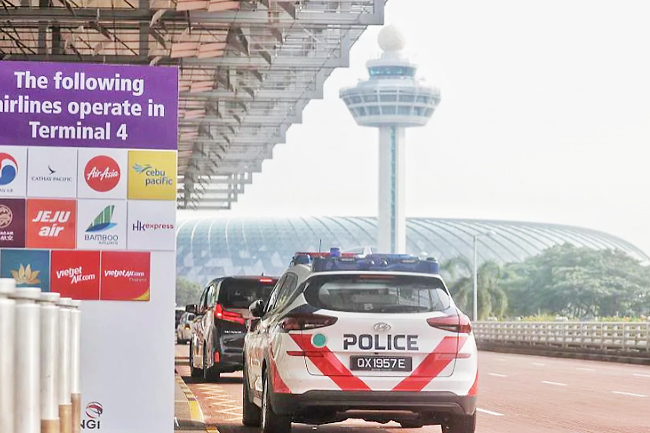THE STAR – A man who allegedly made a false bomb threat on a plane and assaulted a cabin crew member on Wednesday is just one example of the harms that drugs can cause, said Singapore Minister for Law and Home Affairs K Shanmugam.
In the case he was referring to, the 37-year-old man – who is suspected to have consumed controlled drugs – was arrested for purportedly making the threat on board a Singapore Airlines (SIA) flight from San Francisco.
Drugs harm not just abusers, but also those around them, said Shanmugam at a conference by the Singapore Anti-Narcotics Association (SANA) yesterday.
He cited the case of a 25-year-old man who caused the deaths of his mother and grandmother while under the influence of hallucinogenic drug lysergic acid diethylamide (LSD) in 2019. On September 23, the High Court ordered him to be confined indefinitely.
“We don’t see activists holding candlelight vigils for either the grandmother or mother. Their lives matter, too,” Shanmugam said.

While other countries have decriminalised drug use in recent years, this has come with consequences.
For example, in Thailand where the cultivation and consumption of cannabis were legalised in June, there have been reports of teenagers hallucinating and harming themselves after smoking cannabis.
A three-year-old girl who ate a cookie containing the drug had to be rushed to the hospital, Shanmugam said.
The Thai authorities have since had to impose stop-gap measures – such as banning cannabis use in schools and banning its sale to children as well as women who are pregnant or breastfeeding – to control the situation.
A bill to coordinate the regulation of cannabis use was withdrawn from Thailand’s House of Representatives, the minister noted, because of criticism that it did not criminalise recreational use.
However, even if the bill was passed, it would be impossible to regulate, he added.
Singapore’s drug policies are based on “science, evidence and common sense”, Shanmugam said. He pointed to a 2015 review by the Institute of Mental Health, which found research papers from around the world linking cannabis use with irreversible brain damage, brain shrinkage, and serious mental and psychiatric illnesses.
Drugs such as cannabis can be approved for medical use here under certain conditions if prescribed by a doctor, Shanmugam said, though this cannot become an excuse to allow for more widespread use.
“That should be a choice of doctors, not pharma companies selling through shops,” he added.





